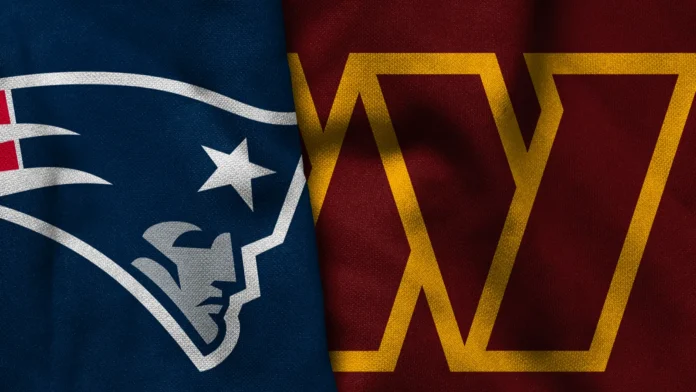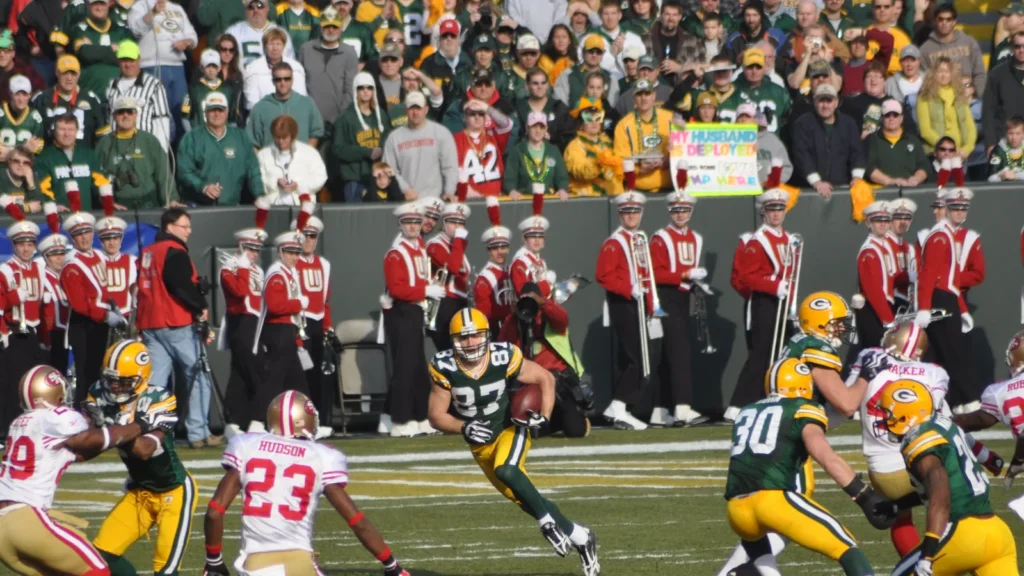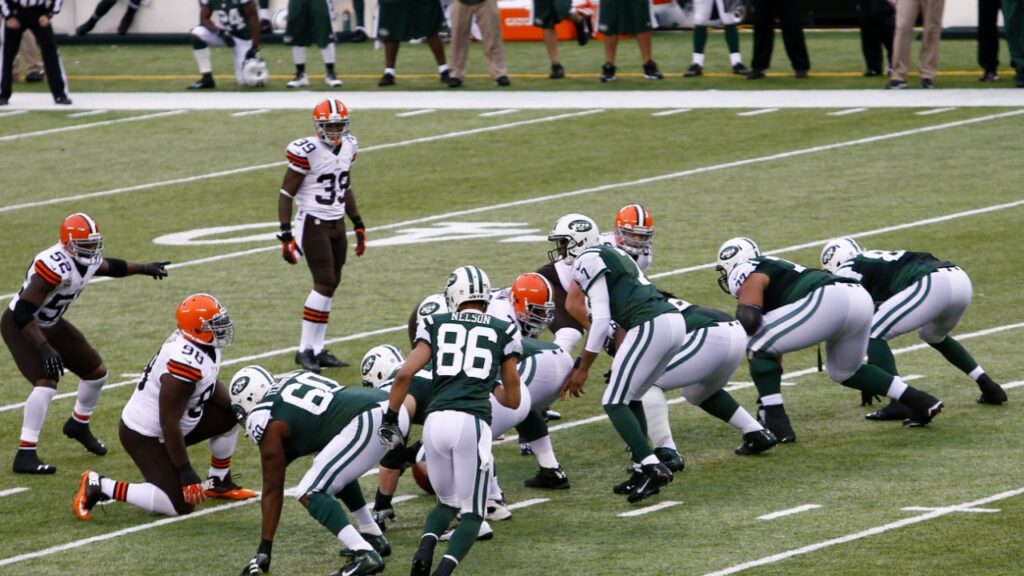
Every football fan knows how powerful rivalries are in the NFL.
They aren’t just games; they’re emotional battles that stretch back decades. Rivalry Week in the NFL captures all that history, passion, and drama.
What started as a few big matchups has grown into something nearly legendary. As the league has evolved, so has Rivalry Week.
Now, it shapes how fans connect, how communities rally, and even how the NFL schedules its season. In this article, we’ll explore how Rivalry Week evolved, why it matters culturally, and the impact it has on the league and its fans.
The Origins and Evolution of Rivalry Week
Early Rivalries and History
Rivalries in the NFL didn’t start as official events. They formed naturally through geography, repeated competition, and shared history.
Teams in the same division or close proximity often developed intense rivalries. One of the oldest is the Green Bay Packers versus the Chicago Bears, dating back to the 1920s.
These games were more than matchups; they were fights for pride, legacy, and bragging rights. Fans passed down stories about legendary players and unforgettable games from generation to generation.
Other rivalries grew from repeated playoff battles or contests for supremacy. Teams that consistently competed for division titles or playoff spots naturally fueled tension. For example, the Dallas Cowboys and Washington Commanders developed a heated rivalry as both teams frequently battled for NFC East dominance in the 1970s and 1980s.
These rivalries existed long before the NFL used scheduling or marketing to highlight them. Players, coaches, and fans gave each game extra meaning, and over time, these traditions became embedded in the league’s culture.

How Scheduling Helped Build Rivalry Week
The NFL’s schedule has played a big role in building Rivalry Week.
With the 17-game season and 18-week schedule, divisional matchups are often placed in the final week. This ensures that rival teams meet at the end of the year, adding intensity and significance.
Teams face each other multiple times over the years, and when they meet in the final week, playoff spots or division titles can hang in the balance. Even if playoff spots aren’t at stake, the emotional and historical importance of these games makes them must-watch events.
The NFL’s scheduling formula also takes into account flexibility to move important games into prime-time TV slots. This allows high-stakes or high-interest rivalry games to get maximum exposure. Fans all over the country can watch the matchups, boosting the league’s visibility and ensuring that the drama of Rivalry Week reaches beyond local markets.
The Formal Recognition of Rivalry Week
Rivalry Week is not an official NFL event, but it has become part of fan culture.
Media, analysts, and fans all focus on Week 18 because many games feature longstanding rivalries. Although the league doesn’t officially call it Rivalry Week, the combination of divisional matchups, high stakes, and fan attention effectively turns Week 18 into a cultural celebration.
Rivalry Week has become a moment when the NFL season’s most emotional and meaningful games are condensed into a single week, creating excitement that spreads across cities, states, and fan communities.

Why Rivalry Week Has Cultural Impact
Identity, Community, and Tradition
Rivalry games shape the identities of teams and their fan bases.
When cities or franchises face off, it goes beyond watching a game, it’s a shared experience. Families gather, tailgate parties flare up, and fans wear team colors like battle armor. Fans feel a sense of loyalty and belonging that comes from rooting for their team against its rival.
Traditions form over time. Fans pass down stories about legendary games and memorable plays. Tailgating rituals, chants, and banners create a sense of community.
Rivalry Week also reinforces regional pride, as local media, schools, and businesses often get involved in the celebrations. The week becomes a collective experience, giving fans a sense of identity and connection that lasts year-round.
Amplifying Fan Energy and Engagement
During Rivalry Week, everything intensifies.
Fans pay extra attention, media coverage ramps up, and social media buzzes with debate and analysis. Rivalry games often carry playoff stakes, division titles, or just bragging rights. These games can determine which teams make the playoffs, who gets home-field advantage, or which city claims bragging rights for the year.
Tailgating and fan gatherings become vibrant celebrations. Parking lots turn into party zones full of food, music, and team chants. Fans show up early, often wearing themed outfits or carrying homemade signs.
Rivalry Week transforms the NFL experience into a festival, where every fan has a chance to participate and celebrate their team.

Economic and Broadcast Impact
Rivalry Week is not just emotionally meaningful; it’s also a major business driver.
High-profile games attract large TV audiences, and networks schedule them in prime slots, often in the final weekend of the regular season. This ensures maximum viewership and advertising revenue.
Merchandise sales also increase. Fans love to buy rivalry-themed gear, including jerseys, hats, and limited-edition memorabilia. Teams use Rivalry Week to release special merchandise and create unique fan experiences.
For the NFL, these games generate significant revenue, combining emotional investment with commercial impact. Rivalry Week is both a cultural moment and a key part of the league’s business strategy.
Examples of Big Rivalries That Define Rivalry Week
Packers vs. Bears
One of the oldest rivalries in the NFL, with games dating back to the 1920s. The rivalry is defined by history, iconic players, and memorable games. Generations of fans have grown up hearing about legendary matchups, and the games continue to draw massive attention and excitement.
Ravens vs. Steelers
A modern but extremely intense rivalry. Known for hard-hitting defense and high-stakes matchups, these teams often battle for division supremacy. The rivalry features physical play, dramatic finishes, and memorable playoff moments, making it one of the most feared matchups in the league.
Bills vs. Chiefs
Although not in the same division, recent playoff battles and high-powered offenses have made this matchup a heated rivalry. The games are exciting to watch, often high-scoring, and feature some of the league’s best quarterbacks. Rivalries like this show how Week 18 can showcase intense competition even outside traditional divisional matchups.
Cowboys vs. Commanders
Another historic rivalry, with both teams frequently competing for NFC East dominance. These games often have major implications for division standings and playoff berths, and they carry decades of tension, tradition, and memorable moments.
Frequently Asked Questions (FAQ)
Q: What exactly is NFL Rivalry Week?
A: Rivalry Week refers to the final week of the NFL regular season, where many matchups are divisional games. Fans call it Rivalry Week because these games are historically intense, full of energy, and often carry extra meaning.
Q: When did Rivalry Week start?
A: Rivalry Week isn’t an official league event. It developed as fans noticed that the last week of the season often featured divisional rivalries. Modern scheduling has made this even more consistent, especially with the NFL’s move to 17 games and an 18-week schedule.
Q: Why does the NFL schedule division games in the final week?
A: Divisional matchups in the final week maximize excitement, tension, and fairness. Teams compete for playoff spots or division titles, and fans get to watch games that matter most at the end of the season.
Q: Do all Week 18 games in Rivalry Week matter for the playoffs?
A: Not always. Some games determine playoff positions, while others may have lower stakes. Even if the stakes are low, the rivalry itself gives the game meaning and energy.
Q: How do rivalries in the NFL start?
A: Rivalries develop through frequent matchups, regional proximity, and playoff battles. Over time, traditions, stories, and fan narratives create lasting rivalries that define the teams and their communities.
Q: Has the NFL ever officially called Week 18 “Rivalry Week”?
A: No. It’s a fan and media term. The league doesn’t market it as Rivalry Week, but scheduling and culture have made it a recognized phenomenon.
Conclusion
- Rivalry Week combines tradition, fan passion, and smart scheduling to create a unique cultural moment.
- Week 18’s divisional games bring communities together and amplify fan energy.
- Rivalries shape identities, foster traditions, and provide unforgettable moments across generations.
- High-profile games drive viewership, merchandise sales, and media attention, making Rivalry Week important both emotionally and economically.
- From historic matchups like Packers vs. Bears to modern rivalries like Bills vs. Chiefs, Rivalry Week celebrates the heart of football.
- Rivalry Week is a reminder that football isn’t just a sport — it’s a way for fans to connect, celebrate, and relive the stories that make the NFL special.
Read More
- How the NFL Keeps Fans Hooked Every Year
- How Rule Changes Keep the NFL Evolving
- Forgotten NFL Teams and Why They Disappeared
This article was made with AI assistance and human editing.



